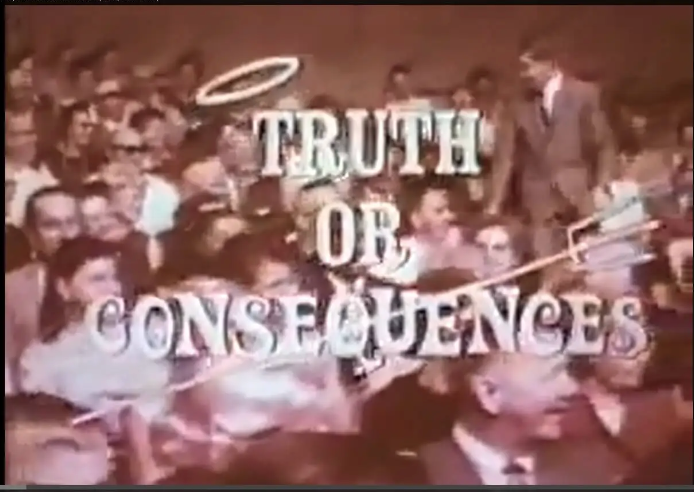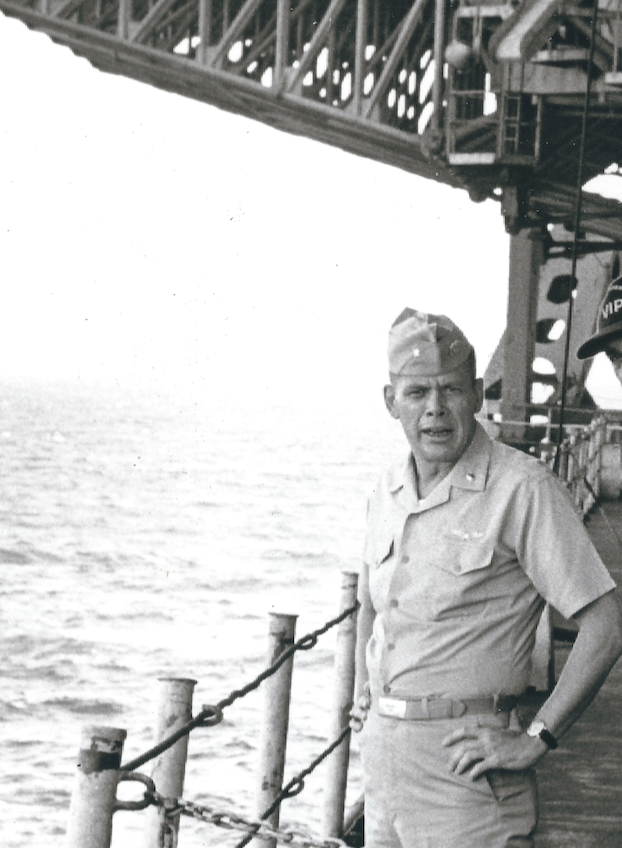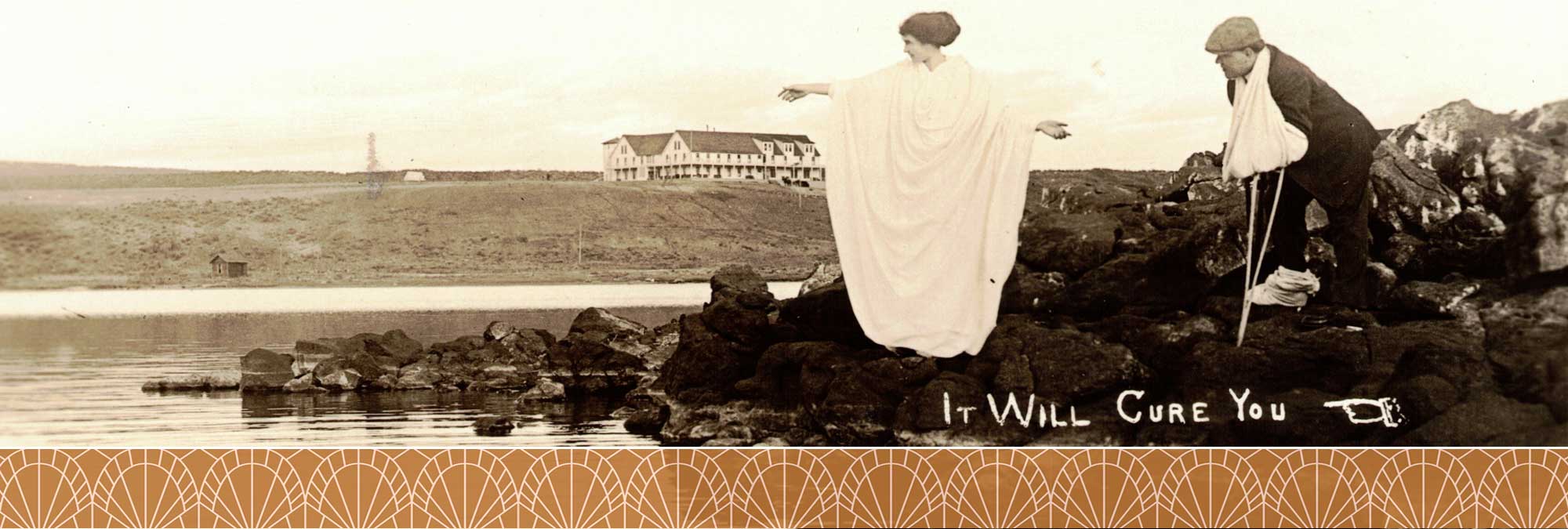
The recent passing of Bob Barker made me remember how, as a young Navy Brat in the 1960s, I was obsessed with him. To my impressionable mind, he was not just some grinning pompadour orchestrating nightly hijinks on Truth or Consequences. He was a genie–and his microphone, a magic wand–with the power to bring men in uniform back home from Over There. And I desperately wanted him to pick my dad to magically appear on the show.
We didn’t tune in to Truth or Consequences often. There was a lot of competition for the 7:30 time slot on our black-and-white Zenith: The Monkees, Gentle Ben, Gilligan’s Island, The Wild Wild West, Daktari, Lost In Space, and, when my mother had her say, The French Chef. But I happened to watch Bob Barker enough times to catch one of his reoccurring schticks: the tearful reunion of a military man with his family who had been pining for his return. My father, a naval flight officer, was often deployed overseas during those years, and I thought this little gambit to get him back might just work. But the logistics stumped me. I was too naive to understand who was surprising whom. Was the family in on it? Was the serviceman? How did they get so lucky? My know-it-all brother scoffed that the whole thing was rigged. Like, this guy’s family just happened to be sitting in the studio audience? Or he was AWOL on national television?
I understood on some level that it was theater, but I was ready for my close up. In first grade, my friend and I had played adorable twins–with matching pixie cuts and striped bathrobes–in our elementary school’s Christmas play. We delivered our only line on cue, in unison, and with deep pathos: “Read us one more, Daddy! Read us one more!” (Acting!) We were then marched offstage, ostensibly to dream of sugar plums, never to be seen again. If there was a typecasting god, I was ready to take my shot as an overwrought and utterly astonished Daddy’s girl on Truth or Consequences.
Inspired by My Favorite Martian, I’d squint at Bob Barker’s square forehead and send him telepathic messages. Pick me! Pick me! But deep down I knew that I would never see my old man emerge from behind those shimmering curtains. I had to admit that my brother was right. The whole thing felt contrived. I could not imagine my clench-jawed, duty-bound, mission-minded, suffer-no-fools-gladly father putting up with the phony baloney of a wacky game show when he was on an aircraft carrier somewhere, fighting “this goddamned war.” Far from being happy to be there, he would have been embarrassed and felt like an “alpha hotel” (phonetic-alphabet-speak for “asshole.”) His scowl would have made us all feel embarrassed and made Bob Barker look like a scolded puppy, which I am certain would never have gotten past the censors.

Bob Barker had served in the naval reserve in World War II, and his hokey reunion stunts harkened to a bygone era. These bits were military propaganda, to be sure. But they also sort of backfired as people were reminded of all the young men who were being drafted as “contestants,” selected at random to play a Kafkaesque game in which truth was elusive and consequences deadly. Years later I learned that only enlisted personnel had been eligible for the show, so we would have been out of luck anyway. I was too young to understand anything about rank or war, of course. All I knew was that seeing those families embrace on stage made me feel that we were not alone. Those reunions planted an image in my wee brain of what a homecoming could look like. They gave me hope, and for that I was grateful to Bob Barker. (He will always be a two-name entity to me, like Pop-Tarts or Kool-Aid.) Now that he has flown home, may his big-hearted, perpetually tanned, pet-neutering soul rest in peace.


